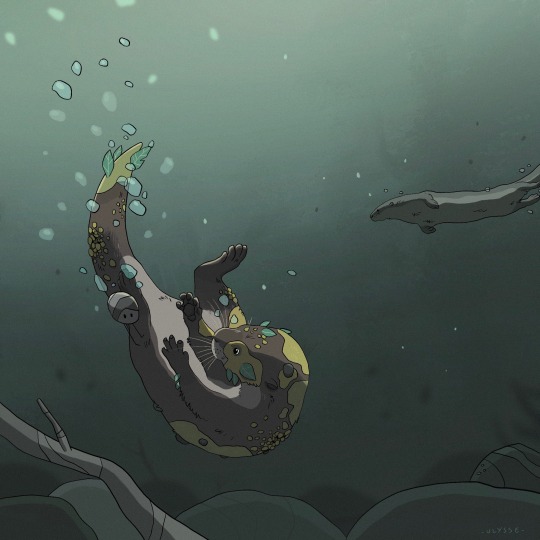Note
Hello! I have a question about el imperativo.
If I want to say "don't you ever forget" would it be "nunca olvida"?
Because if it is " nunca no olvides" there is like 2 negative forms
Maybe just "no olvides" is better but I want to use it with nunca
You can say nunca olvides
You don't necessarily need a no for a negative; you need a negating word
These are often no, ni, nunca, and occasionally jamás which is like "never/ever" or "never again" [literally it's like jamais in French]
-
You could say no olvides "don't forget", nunca olvides "never forget", or nunca olvides (jamás) / jamás olvides "never ever forget" or "don't ever forget"
...Situationally you could probably say ni olvides but that's like "don't even forget"; ni + command is like "don't you even think about (doing something)"
19 notes
·
View notes
Text

Norwegian Word of the Day 13/05/24
drakt (m/f) - attire, kit, outfit
en/ei drakt | drakten, drakta | drakter | draktene
Har du sett lagets nye drakt? (Have you seen the team's new kit?)
Usage note
Drakt is typically used as a suffix that you just stick to the end of a word to make it mean "outfit (used for this purpose). For example: treningsdrakt (workout kit), badedrakt (swimming kit), fotballdrakt (football kit) vinterdrakt (winter clothes), nasjonaldrakt (traditional/national clothing) and so on.
While antrekk describes an outfit you might put together for a particular day, drakt is something you typically wear for a specific purpose or occasion.
7 notes
·
View notes
Text
Scary scary German syntax... right?
The following sentence exhibits a typical mistake German-learners make: Heute ich gehe in ein Museum.
It's not conjugation ("ich gehe" is correct!), it's not declension ("ein Museum" is correct too!). The issue is "heute ich gehe". Correct would be: Heute gehe ich in ein Museum (or: Ich gehe heute in ein Museum.)
What's the rule here?
It's unfortunately not simply "there can only be one word before the verb"
German word order is so difficult be cause it is so variable. All following sentences are correct and synoymous (though emphasis shifts):
Der Opa schenkt seiner Enkelin zum Geburtstag ein Buch über Autos.
Seiner Enkelin schenkt der Opa zum Geburtstag ein Buch über Autos.
Ein Buch über Autos schenkt der Opa seiner Enkelin zum Geburtstag.
Zum Geburtstag schenkt der Opa seiner Enkelin ein Buch über Autos. All mean: The grandfather gifts his niece a book about cars for her birthday.
What do they all have in common, syntax-wise? There's only one phrase in front of the finite verb. What does this mean? A phrase is a completed (!) unit that can consist of one or more words (depending on the word class (-> noun, verb, …)) Typical word classes that can be a phrase with just one word are:
Proper nouns, plural nouns, personal pronouns, relative pronous (Lukas kocht. Busse fahren. Ich schreibe. Der Mann, der kocht, …)
Adverbs (Heute, Morgen, Bald, Dort, Darum, …) Most other word classes need additional words to form a full phrase:
adjectives need a noun and article: der blaue Ball, der freundliche Nachbar
nouns need a determiner (= article): der Mann, eine Frau, das Nachbarskind
prepositions need… stuff (often a noun phrase): auf der Mauer, in dem Glas, bei der Statue
…
A finite verb is the verb that has been changed (=conjugated) according to person, time, … All verbs that are NOT infinitive or participles are finite. ich sagte -> "sagte" is the finite verb ich bin gegangen -> "bin" is the finite verb The infinitive and the participle are called "infinite verbs" and are always pushed towards the end (but not always the very end!) of the sentence: Ich bin schon früher nach Hause gegangen als meine Freunde.
So: Before the verb (that is not the participle or infinitive) there can only be one phrase.
Since "heute" is an adverb (-> forms a full phrase on its own) and "ich" is a personal pronoun (-> forms a full phrase on its own), they can't both be in front of the verb "gehe" You have to push one of them behind the verb: Heute gehe ich in ein Museum Ich gehe heute in ein Museum.
Both of these are main clauses (Ger.: Hauptsätze), which in German exhibit "V-2 Stellung", meaning the finite verb is in the second position (after one phrase).
What happens if we push all phrases behind the finite verb?
Gehe ich heute in ein Museum? (Watch out: Gehe heute ich in ein Museum would be ungrammatical! The subject has to come in the second position)
It's a question now!
In German, question sentences (that do not start with a question word like "Was?", "Wo?", …) start with the finite verb (called "V-1 Stellung").
Questions, main clauses,… what's missing?
Dependent clauses!
The third type of sentence exhibits "V-letzt Stellung" or "V-End Stellung", meaning the finite verb is at the very end of the sentence. Ich bin gestern in ein Museum gegangen, … main clause -> V-2 Stellung … weil es dort eine interessante Ausstellung gab. dependent clause -> V-letzt Stellung If you want to practice this....
... determine if the following German sentences are correct. If not, what would be the right way to say it?
Der Zug war sehr voll.
Gestern ich war in der Schule.
Die Lehrerin mich nicht hat korrigiert.
Gehst du heute zur Arbeit?
Das Buch ich finde nicht sehr interessant.
To practice this further, translate the following sentences into German and focus on the order of words:
The boy gave the ball back to me.
I called my girlfriend because I missed her.
The girl saw her brother at the train station.
The horse, which was standing on the field, was white and black.
337 notes
·
View notes
Text
Spanish Essentials; Tenses Masterpost
____________________________________________________________
El Presente
To be used when currently doing the activity
AR ER IR
o o o as es es a e e amos emos imos áis éis ís an en en
Common Verbs, Irregulars and Stem Changers
· SER; soy, eres, es, somos, sois, son
· ESTAR; estoy, estás, está, estamos, estáis, estan
· IR; voy, vas, va, vamos, vais, van
· HACER; hago, haces, hace, hacemos, hacéis, hacen
· TENER; tengo, tienes, tiene, tenemos, tenéis, tienen
e.g. I speak Hablo
____________________________________________________________
El Pretério
To be used the same as English simple past; ‘ed’
AR ER IR
é í í aste iste iste ó ío ió amos imos imos asteis isteis isteis aron ieron ieron
Common Verbs, Irregulars and Stem Changers
· SER; fui, fuiste, fue, fuimos, fuisteis, fueron
· ESTAR; estuve, estuviste, estuvo, estuvimos, estuvisteis, estuvieron
· IR; fui, fuiste, fue, fuimos, fuisteis, fueron
· HACER; hice, hiciste, hizo, hicimos, hicisteis, hicieron
· TENER; tuve, tuviste, tuvo, tuvimos, tuvisteis, tuvieron
e.g. I spoke Hablé
____________________________________________________________
El Imperfecto
To talk about something that ‘was’ happening
AR ER IR
aba ía ía abas ías ías aba ía ía ábamos íamos íamos abais íais íais aban ían ían
Common Verbs, Irregulars and Stem Changers
· SER; era, eras, era, éramos, erais, eran
· IR; iba, ibas, iba, ibamos, ibais, iban
· VER; ve��a, veías, veía, veíamos, veíais, veían
e.g. I was speaking Hablaba
____________________________________________________________
El Perfecto
To talk about something that has happened/ Can also be used to say I have just…
1) Use the present tense of HABER (to have)
HABER he has ha hemos habéis han
2) Form the past participle
AR-ADO ER-IDO IR-IDO
3) Place together
e.g. I have (just) spoken He Hablado
____________________________________________________________
El Pluscuamperfecto
To talk about something that had happened
1) Use the imperfect tense of HABER (to have)
HABER había habías había habíamos habíais habían
2) Form the past participle
AR-ADO ER-IDO IR-IDO
3) Place together
e.g. I had spoken Había Hablado
____________________________________________________________
El Futuro
to say I am going to…
1. Use the verb IR (to go) ; voy, vas, va, vamos, vais, van
2. Follow it with an ‘a’
3. Use an infinitive e.g. Hablar (to speak)
e.g. I am going to speak Voy a hablar
____________________________________________________________
El Futuro
to say I will…
*These are added on to the infinitive*
AR/ER/IR
é ás á emos éis án
Common Stem Changers
· HACER-Har+
· TENER-Tendr+
e.g. I will speak Hablaré
____________________________________________________________
El Condicional
to say I would…
*These are added on to the infinitive*
AR/ER/IR
ía ías ía íamos íais ían
Common Stem Changers
· HACER-Har+
· TENER-Tendr+
e.g. I could speak Hablaría
____________________________________________________________
3K notes
·
View notes
Text
ending a story in other languages
kurdish: “my story went to other homes, god bless the mothers and fathers of its listeners” (Çîroka min çû diyaran, rehmet li dê û bavê guhdaran.)
greek: “and they lived well, and we lived better” (και ζήσανε αυτοί καλά και εμείς καλύτερα)
afrikaans: “whistle whistle, the story is done” (fluit fluit, die storie is uit)
goemai: “my tale has finished, (it) has returned to go (and) come home.” (tamtis noe lat / dok ba muaan yi wa)
amharic: “return my story and feed me bread” (ተረቴን መልሱ አፌን በዳቦ አብሱ::)
bengali: “my story ends and the spinach is eaten by the goat” (aamaar kothati furolo; Notey gaachhti murolo) *means something is irreversibly ended because goats eats herbs from the root
norwegian: “snip snap snout, the tale is finished” (snipp snapp snute, så er eventyret ute”
polish: “and i was there [at the wedding] too, and drank mead and wine.” (a ja tam byłem, miód i wino piłem.)
georgian: “disaster there, feast here… bran there, flour here…” (ჭირი – იქა, ლხინი – აქა, ქატო – იქა, ფქვილი – აქა)
hungarian: “this is the end, run away with it” (itt a vége, fuss el véle)
turkish: “lastly, three apples fell from the sky; one for our story’s heroes, one for the person who told their tale, and one for those who listened and promise to share. And with that, they all achieved their hearts’ desires. Let us now step up and settle into their thrones.” (Gökten üç elma düşmüş; biri onların, biri anlatanın, diğeri de dinleyenlerin başına. Onlar ermiş muradına, biz çıkalım kerevetine.)
36K notes
·
View notes
Text
USPS pilots postal banking

If you’re lucky enough to have stable employment and good credit, you’re living cheap. Poverty is far more expensive than affluence. Take check-cashing: even the sleaziest bank doesn’t charge you to give it money — but what if you don’t have a bank account?
For millions of Americans — the poorest, working the hardest jobs, for the longest hours — getting paid is expensive. When a bank won’t do business with you, you need alternative arrangements, like visiting one of the check cashing places that are all over poor neighborhoods.
Providing high-priced financial services to poor Americans is a $18.2b/year, Made-in-America industry, built high fees charged to the people with the least ability to afford them — $15 to cash a $500 check.
https://www.ibisworld.com/industry-statistics/market-size/check-cashing-payday-loan-services-united-states/
It doesn’t have to be this way. We could follow the leads of many other countries and open public banks that provide financial utilities to everyday people at reasonable costs, wiping out the whole exploitative industry at the stroke of a pen.
The most ambitious version of this plan is something like the Public Bank of Los Angeles, which would also provide payroll services for city and county workers, as well as issuing loans for public projects and local businesses.
https://publicbankla.com
We should pursue that dream. But while we chase it, let’s do something right now about predatory financial services — something like a postal bank, where check-cashing is cheap and ATMs are free.
That’s not just a plan — it’s reality. USPS is trialing it right now, in four locations: the Bronx, DC, Falls Church and Baltimore.
https://prospect.org/economy/usps-begins-postal-banking-pilot-program/
The Postal Bank pilot is limited and kind of convoluted — because its lacks Congressional authorization, the “check cashing” is structured as a “gift card sale” — you hand over your check, the postal clerk hands you a no-fee Visa debit card for its face value less $5.95.
This could be expanded through no-fee ATMs, and the cards could be reloadable, avoiding the $5.95 fee for each check — that is, it could be turned into a postal bank that fulfills the core functions of the postal banks that USPS offered until 1967, to the benefit of millions.
The bank trial owes its existence to APWU, the postal workers’ union, which included the bank pilot in its collective bargain, and whose leaders personally sold Postmaster General (and archvillain) Bill DeJoy on it.
As David Dayen writes, a national postal bank would be hugely consequential for millions of Americans — putting more money in the pockets of the people who have the least.
Image: Tony Webster (modified) https://commons.wikimedia.org/wiki/File:Checks_Cashed_(17626366404).jpg
CC BY: https://creativecommons.org/licenses/by/2.0/deed.en
890 notes
·
View notes
Text
The End and the Beginning
by Wislawa Szymborska
After every war someone has to clean up. Things won’t straighten themselves up, after all. Someone has to push the rubble to the sides of the road, so the corpse-laden wagons can pass. Someone has to get mired in scum and ashes, sofa springs, splintered glass, and bloody rags. Someone must drag in a girder to prop up a wall, Someone must glaze a window, rehang a door. Photogenic it’s not, and takes years. All the cameras have left for another war. Again we’ll need bridges and new railway stations. Sleeves will go ragged from rolling them up. Someone, broom in hand, still recalls how it was. Someone listens and nods with unsevered head. Yet others milling about already find it dull. From behind the bush sometimes someone still unearths rust-eaten arguments and carries them to the garbage pile. Those who knew what was going on here must give way to those who know little. And less than little. And finally as little as nothing. In the grass which has overgrown reasons and causes, someone must be stretched out blade of grass in his mouth gazing at the clouds.
342 notes
·
View notes
Note
there should have been references to Dolly Parton but also Loretta Lynn or even Linda Ronstadt’s mexican-american folk dresses!








there were a lot of missed opportunities
428 notes
·
View notes
Note
What really makes Quannah Chasinghorse's outfit for me (besides somehow making silver and turquoise jewelry work with a gold lamé gown) is that she totally embodied the intention of that jewelry (which makes sense, given she had help from a former Miss Navajo). Jewelry from Southwestern tribal nations is so big and eye-catching because it comes from a tradition of ceremonial jewelry where the pieces are meant to catch the attention of the spirits. Quannah caught the attention of EVERYBODY, human and spirit!
nice
150 notes
·
View notes
Text
I agree with the message but?! this is tone deaf coming from one of the elitist, most prestigious fashion events in the world. you are rich to even be invited, an event where the ticket is literally $30,000…. I’m gonna eat YOU



125K notes
·
View notes
Text
I think a fun thing would be if we simply didn't have access to information regarding famous people's personal lives and relationships. Like i just think that would be fun and productive for us. We could focus on other stuff, like our own personal lives and relationships. I think that'd be neat.
81K notes
·
View notes
Note
What if someone in purgatory has no one to pray for them?
They have you:
Eternal Father, I offer Thee the Most Precious Blood of Thy Divine Son, Jesus, in union with the masses said throughout the world today, for all the holy souls in purgatory, for sinners everywhere, for sinners in the universal church, those in my own home and within my family. Amen.
830 notes
·
View notes













